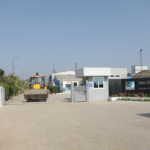Wondering if an NRI in Manila, Philippines can do Fixed Deposit in India?
This article will surely give some credible solutions to your problems. The article below will discuss NRI Fixed Deposit: NRI FD, FD rates. So, if you are an NRI in Manila, Philippines and wondering how you can make a Fixed Deposit in India, you are at the correct place. We will request you to read the article till the end to get complete information about NRI Fixed Deposit: NRI FD, FD rates for NRIs in Manila, Philippines
First of all, you should know that, unlike other resident Indians, a Non-Resident Indian (NRI) is not permitted to open an ordinary Account. The guidelines of the Foreign Exchange Management Act (FEMA) obstruct NRIs from opening a normal bank account. No one is allowed to violate this rule and if someone is found violating the rule then they are subjected to a huge penalty. Above all the Account holder will not receive any interest if the Account is closed within a year.
Can Non-Resident Indians (NRI) in Manila, Philippines have Fixed Deposits in India?
Now you must be thinking that if an NRI is not subjected to holding a normal bank account then how he/she will be able to make a Fixed Deposit?
The answer to this question is that an NRI in Manila, Philippines can have a Non-Resident External Account if he/she wishes to make Fixed Deposit in India. Talking about (NRE) Non-Resident External Account banks they can be of different types like – savings, recurring or Fixed Deposits.
Non-Resident External Accounts (NRE) are the bank accounts opened for the convenience of NRIs where they can deposit their foreign currency swiftly. And the best part is that their foreign currency will get remitted to an Indian bank account. The Non-Resident External Account (NRE) is held in Indian currency (rupees) and you will be amazed to know that it is completely tax-free. The article will be discussing the best NRI Fixed Deposit: NRI FD, FD rates for NRIs in Manila, Philippines available in India.
Who is a Non-Resident Indian (NRI)?
As per the guidelines of the Income Tax Department of India a person who is a citizen of India or a person of Indian origin and not a resident of India will be considered a Non-Resident Indian (NRI). So, to determine whether a person is a Non-Resident Indian or not one needs to determine his/her Resident status under Section 06.
According to Section 06 of the Income Tax Act,A person will be considered NRI if he/she is not residing in India or the individual is deemed to be residing previously in India. A person who fulfils the below-given conditions then only he/she will be considered an NRI.
- If the person was in India for 182 days or more than that during the previous year then he/she will be considered an NRI or,
- If the person is in India for 60 days or above than that during the previous years and 365 days or more than that during 4 years immediately preceding the previous year.
In the case of a person of Indian origin or an Indian citizen who visits India during a year, the 60 days mentioned in the second point shall be substituted with 182 days. A similar concession will be provided to any individual who migrated from India in any previous year for employment. However, the Finance Act 2020 (The assessment year 2021-22) has made the amendment by making the above exception to provide that the period of 60 days (mentioned in the second point) shall be substituted with 120 days if an Indian citizen or a person of Indian origin has a total income (income other than foreign sources) exceeds beyond Rs.15 Lacs in the previous year. Income from foreign sources in the clause includes the income which arises outside India. Here the income generated from a business controlled in or a profession set up in India is a complete exception.
NRIs in Philippines
During the Spanish administration of the islands in the sixteenth century, the Philippines were named after Philip II, King of Spain. The Philippines has significant cultural linkages with the West, having been under Spanish domination for 333 years and then under US tutelage for another 48 years. It is, for example, Asia’s second-most populous nation (after India) with English as its official language, as well as one of Asia’s only two exclusively Roman Catholic countries (the other being East Timor). Despite the preponderance of Anglo-European cultural features, the Filipinos’ attitudes and aspirations remain Asian.
During the final quarter of the twentieth century, the country was torn apart by political unrest. In 1986, following more than a decade of authoritarian rule under President Ferdinand Marcos, the People Power movement began a nonviolent uprising against the government. Marcos was deposed and exiled as a result of the conflict, which also resulted in the restoration of democratic governance in the Philippines.
Capital:- Manila
Population:- 112,917,000(2022 Est.)
Official Languages:- Filipino; English
Total Area:-295,633 (Sq Km)
Monetary Unit:-Piso
Currency Exchange Rate:- 0.68 peso
Indian Filipinos are Filipinos of Indian heritage who have established themselves in what is now the Philippines and have historical ties to the country. The word refers to Filipinos of pure or mixed Indian ancestry who are now residing in the nation, the latter as a consequence of intermarriages between Indians and locals.
Trade between the Indian subcontinent and the Philippine Islands has been documented from the ninth and tenth centuries B.C., according to archaeological data. According to National Geographic, South Asian DNA accounts for 3% of the typical Filipino’s genes or about 3,300,000 people.
The Philippines is the only Southeast Asian country that was colonised by the West before it had the chance to build a centralised government that ruled over a wide area or a dominating culture. The inhabitants of the Philippines in ancient times were a heterogeneous assemblage of peoples who arrived in several waves from the Asian mainland and had little interaction with one another.
In 982, the Indonesian dynasties of Srivijaya and Majapahit brought certain cultural influences from South Asia to the islands, such as a Sanskrit-based writing system; nonetheless, in comparison to other areas of the region, China and India had minimal effect on the Philippines. Unlike the majority of Southeast Asian peoples, the ethnic of the Philippine archipelago never converted to Hinduism or Buddhism.
Cultural life
The society of the Philippines is a unique blend of diversity and conformity. Despite its Southeast Asian setting, the country has a strong Euro-American culture. Assimilation forces have worked tirelessly to overcome cultural disparities among the island’s numerous ethnic groups, which are scattered—sometimes in relative isolation—across the archipelago. On the other hand, over four centuries of Western supremacy have left an indelible impact on the Philippines, serving as a conduit for the introduction of Western culture and a catalyst for the building of a sense of political and cultural unity in the country.
Economy
The Philippines is mostly a farming country. Individuals and nonprofit organizations are allowed to engage in its creation and maintenance, sometimes with the help of government credit.
Filipinos collectively refer to the Philippines’ ethnically diverse people. The great majority of the people have Malay forebears who originated on the Southeast Asian mainland as well as in what is now Indonesia. Nearly 100 culturally and linguistically different ethnic groups make up contemporary Filipino culture.
The total number of islands in the archipelago was previously considered to be 7,107, but in 2016, the Philippines’ National Mapping and Resource Information Authority announced the discovery of more than 500 previously unknown islands. The archipelago covers 1,150 miles (1,850 kilometres) from north to south, with the largest east-west width of 700 miles in its southern base (1,130 km).
Difference between a Non-Resident External Account (NRE) and a Non-Resident Ordinary Account (NRO) for NRIs in Manila, Philippines

It gets very difficult to choose when you have plenty of insurance offers in the industry so you have to choose very smartly. For choosing a suitable option for yourself you need to do a significant amount of research and see which one best suit your requirements. A correct investment option will help you in getting higher returns depending on your preferences and requirements.
Non-Resident External (NRE) Accounts and Non-Resident Ordinary (NRO) Accounts are two Account options available for NRIs in Manila, Philippines. Both of them are quite popular and you can try your hands on them if you want to save and get high returns. If you are confused between the two and don’t know what to choose for yourself then below are some of the basic demarcations between the two types of bank accounts.
What is a Non-Resident External Account (NRE) and a Non-Resident Ordinary Account (NRO) for NRIs in Manila, Philippines?
NRE Accounts help an NRI in Manila, Philippines in transferring his/her foreign income to India, in any denominations but it should be converted into Indian currency (Rupees). On the other hand, NRO Accounts help an NRI in Manila, Philippines managing its income earned in India. Remember that the income earned should be in Indian denominations.
What is the transferability of a Non-Resident External Account (NRE) and a Non-Resident Ordinary Account (NRO) for NRIs in Manila, Philippines?
You should know that money and deposits in NRE Accounts are transferable which means that it is repatriable. Besides this, the earned interest and the principal amount in NRE bank accounts are free and completely transferable. While the funds in NRO Accounts are transferable after the payment they will be taxed within the set limit (USD 1million) in a financial year.
Is it authentic to open a Non-Resident External Account (NRE) and a Non-Resident Ordinary Account (NRO) joint Account for NRIs in Manila, Philippines?
In the case of NRO Accounts, you can open a joint NRO Account with a Non-Resident Indian or a resident Indian. However, you can open an NRE Account only with a Non-Resident Indian.
What you should choose between a Non-Resident External Account (NRE) and a Non-Resident Ordinary Account (NRO) for NRIs in Manila, Philippines?
If you are an NRI in Manila, Philippines who desires to hold or mainstream their income earned overseas in Indian currencies then NRE Accounts are best suited for you. On the other hand, if you want to save your earnings in Indian denominations itself then NRO Accounts are ideal for you. Besides this savings in NRO Accounts include property sales, rent, dividends, and many more.
Tax and deposits in a Non-Resident External Account (NRE) and a Non-Resident Ordinary Account (NRO) for NRIs in Manila, Philippines
NRE Accounts have tax-free deposits when it comes to tax. Above all the interest that you will earn and your principal sum is also exempted from tax. While the interest earned in NRO Account deposits is taxable. The interest is subjected to a Tax deduction and you can avail it at the Tax deduction source.
Regarding the deposits NRE Accounts allow the depositor to make deposits only in foreign currency. While NRO Accounts accept deposits in Indian currency (Rupees) as well as foreign currency.Besides this, both NRE and NRO bank accounts allow withdrawals in Indian currency (Rupees).
The NRE Accounts are a bit susceptible to risk while NRO Account deposits are non-susceptible to risks. Along with this, the NRE bank deposits are vulnerable to the fluctuations of the exchange rate and loss of conversion while NRO bank deposits are not vulnerable to fluctuations of the exchange rate and currency.
Features of Non-Resident External Fixed Deposit Account(NRE-FD) for NRIs in Manila, Philippines
Following are the features of a Non-Resident External Fixed Deposit Account (NRE): –
- One can deposit money in Indian Currency in NRE FD Accounts.
- The process of closing an NRE FD Account is simple and hassle-free and one can close it any time after opening.
- You can get up to 90% overdrafts over the NRE FDs in some banks.
- In some banks, you can get a joint NRE FD Account.
- The banks provide tax saver FD Accounts to the NRIs that make them eligible to claim tax benefits according to the Income Tax Act.
- Banks also have stipulations regarding the minimum and maximum amounts over the deposits.
- NRE FD Accounts plan provides flexible tenures that may range from one year to over ten years.
- The banks also facilitate you by providing the facility of auto-renewal at the time of maturity.
- You can also get a loan against NRE FD Accounts.
- Nomination is allowed under NRE Accounts.
Eligibility criteria to receive a Non-Resident External Fixed Deposit Account(NRE-FD) for NRIs in Manila, Philippines
To get an NRE Fixed Deposit one needs to fulfil the two below-given criteria: –
- If you desire to open an NRE Fixed Deposit then either you must need to be an Indian or a person of Indian origin/Non-Resident Indian (NRI).
- Besides this, you need to have a Non-Resident External Account then only you will be able to make a Fixed Deposit in India.
Important Documents Required for NRIs in Manila, Philippines
The opening of a Non-Resident External Account (NRE) is a simple process you need to submit the below-mentioned documents to open an NRE Fixed Deposit Account.
- You need to submit valid identity proof.
- Next, you need to submit your passport(First Four Letters-Pages mentioned his/her name, photograph, date of birth, address, expiry date,Date and place of issue and Signature on the passport)
- They need your valid work visa/ Residence permit
Why you should get a Non-Resident External Fixed Deposit Account(NRE-FD) for NRIs in Manila, Philippines?
There are many reasons for getting a Non-Resident External Fixed Deposit Account(NRE-FD) for NRIs in Manila, Philippines, they are as follows: –
First of all, being an NRI, you are completely eligible for opening an NRE Fixed Deposit Account in India and you can earn good interest if you choose wisely.
The bank will facilitate you by availing you of the facility of overdraft and loan against Fixed Deposit so that you can have money when required.
In NRE Fixed Deposits the bank will provide you with the facility of the nominee.
The Fixed Deposits can also work as a ready fund in case of urgency as the NRE Fixed Deposits can be closed prematurely.
Interest Rates for NRE/NRO Fixed Deposits for NRIs in Manila, Philippines
The policy of loan against a Non-Resident External Fixed Deposit Account (NRE-FD) for NRIs in Manila, Philippines
Financial problems cannot be predicted and during any financial crisis loan against Fixed Deposits from banks is a reliable source. You can get a short-term loan by doing Fixed Deposits. A person needs to have a Non-Resident External Account for making a Fixed Deposit and you can easily apply for a short-term loan in your NRE bank.
An NRI can deposit its money in its NRE bank account in the form of savings or investments as they offer better returns. You should know that you are allowed to make NRE deposits only in Indian currency (Rupees). The bank will facilitate you by providing complete transferability and on top of that, the interest you will earn will also be exempted from the taxes.
Below given are the key features of getting a loan against NRE Fixed Deposit: –
- One is eligible to get the loan for any type of business activity, for buying flat/property in India, or for meeting other financial crises.
- The bank will provide loans to the depositor only.
- Remember that an NRE Fixed deposit in not permissible for premature withdrawal if an overdraft is outstanding on the account.
- You can receive the loan in Indian Currency or Foreign Currency depending on your requirement against NRE Account deposits.
- The interest rate will be charged at monthly intervals and the interest rate will be charged in both Indian currency and foreign currency.
Eligibility criteria to get a loan against a Non-Resident External Fixed Deposit Account(NRE-FD) for NRIs in Manila, Philippines
To become eligible for getting a loan against a Non-Resident External Account you need to fulfil the following criteria: –
The person who is investing should have his/her name, photograph, date of birth, address,expiry date,Date and place of issue and Signature on the passport.
The person needs to have an NRE deposit Account in single name(Holder) only with six months of Minimum residual period.
Lastly, the visa documents submitted by the investor should have a work permit, visa for permanent residence, residence permit, or employment visa.
Benefits of having a Non-Resident External Fixed Deposit Account(NRE-FD) for NRIs in Manila, Philippines

Advantages of having an NRE Fixed Deposit Account for NRIs in Manila, Philippines: –
- In India both the principal amount and the interest earned are tax-free.
- The interest you will earn and the principal amount will be freely repatriable to the country of your residence.
- You can get your NRE Fixed Deposit under the deposit insurance and Credit Guarantee Corporation insurance besides this you will receive a compensation of up to Rs. Five lakhs if the bank defaults.
- NRE Fixed Deposit tenure is completely flexible and it can range from one year to over ten years.
- You can also have a joint NRE Account with other NRIs.
- Above all, you will receive a higher interest rate as compared to savings Accounts.
That’s it about the NRI Fixed Deposit: NRI FD, FD rates for NRIs in Manila, Philippines. We know that it gets very tricky as well as difficult when it comes to finding the best option for yourself when you have plenty of options and Fixed Deposits in India are no exception. There are a variety of Fixed Deposit deals in India that can confuse you about what to pick. Several banks have their branches in foreign countries so you should check whether the bank account is operable from your resident country.
We believe this article has helped you in getting some clarity about NRI Fixed Deposit: NRI FD, FD rates in India for NRIs in Manila, Philippines. In case you still have any queries regarding NRI Fixed Deposit in India then feel free to ask your concerns in the comment section. We will try to provide you with the answer to all the Fixed Deposit related queries as soon as possible. For further improvement don’t forget to drop your valuable feedback in the comment section. And for more Fixed Deposits or investment-related articles like this please subscribe to the website.








































